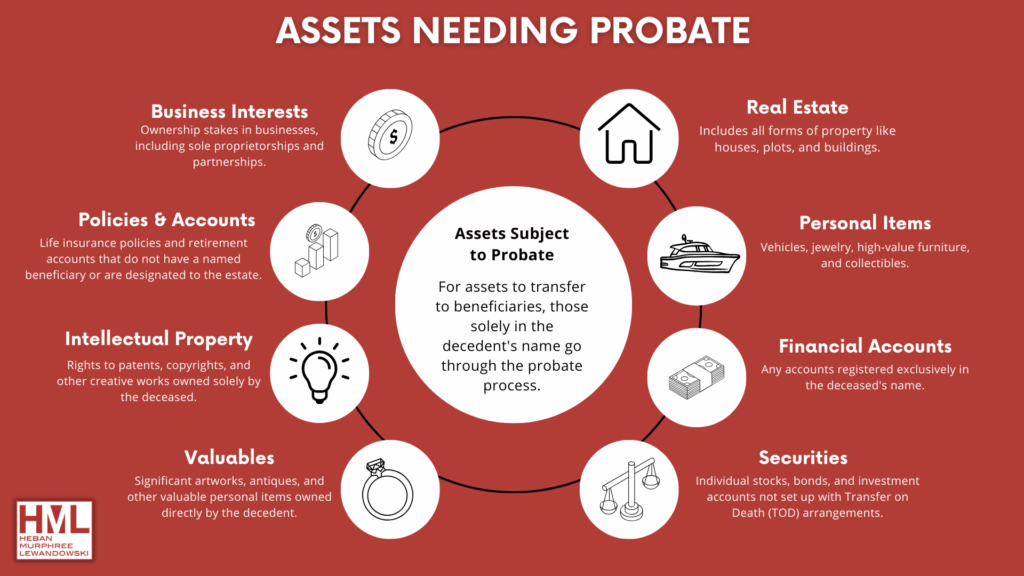- EXPERIENCED LAW FIRM IN TOLEDO, OH
- (419) 662-3100
Guide to Statute of Limitations

Ohio’s Guide to Boundary by Acquiescence
January 27, 2025
Can Probate Be Reopened Once It’s Closed?
February 7, 2025What Happens If You Miss a Probate Deadline in Ohio?
Probate is a legal process that oversees the distribution of a deceased person’s estate, ensuring that debts are paid, assets are transferred to rightful heirs, and settling legal disputes. In Ohio, probate proceedings are governed by strict deadlines, known as statutes of limitations, which dictate how long parties have to make claims, challenge wills, or recover assets. Failing to meet these legal deadlines can result in permanently barred claims, leaving creditors, beneficiaries, and other interested parties without legal recourse.
The statute of limitations varies depending on the type of claim against the estate. Some claims, such as those from creditors, must be filed within six months, while will contests must be initiated within three months of receiving notice of probate. In Medicaid estate recovery cases, the timeline extends up to one year. Understanding these time-sensitive legal requirements is essential for executors, beneficiaries, and other parties involved in estate administration.
This article reviews Ohio’s probate statute of limitations, explaining the deadlines applicable to various claims, including creditor demands, executor claims, will contests, and Medicaid recovery. It also explores the consequences of missing these deadlines and guides navigating probate efficiently.
Executor and Administrator Claims Against the Estate
Executors and administrators are crucial in managing an estate’s probate process. An executor or administrator may sometimes have a personal claim against the estate. For example, they may seek compensation for services rendered to the decedent before death or reimbursement for expenses incurred on behalf of the estate.
Ohio law requires that any claim by an executor or administrator be filed within three months of the decedent’s death, as outlined in Ohio Revised Code § 2117.02. If this deadline is missed, the executor or administrator forfeits the ability to seek payment from estate assets. Since an executor also holds a fiduciary duty to act in the best interest of beneficiaries, these claims must be carefully handled to avoid conflicts of interest or allegations of improper estate management.
Creditor Claims Against the Estate
When a person dies, they often leave behind outstanding debts, including medical bills, credit card balances, and personal loans. Creditors seeking to recover money from an estate must act quickly, as Ohio law imposes a strict six-month deadline from the decedent’s death to file claims, as specified in Ohio Revised Code § 2117.06(B).
If a creditor fails to present a claim within this period, it is permanently barred, and the creditor loses the right to collect from the estate. This statute applies to all unsecured and secured debts, with the exception of Medicaid recovery, which follows a different timeline. Executives should review the decedent’s financial records to ensure proper notification and notify known creditors of the pending probate proceedings.
Shortening the Creditor Claims Period
Although creditors generally have six months to file claims, Ohio law allows executors to reduce this period to 30 days by issuing a written notice to specific creditors. Under Ohio Revised Code § 2117.07, if an executor provides a creditor with written notice, the creditor must submit their claim within 30 days of receiving the notice or within six months of the decedent’s death, whichever comes first.
This provision enables executors to accelerate the probate process by resolving outstanding debts more quickly. However, this also requires diligent record-keeping and timely correspondence with potential creditors to ensure compliance with legal requirements. Executors should consider consulting an attorney before issuing notices to creditors to avoid possible disputes.
Rejected Claims and the Two-Month Litigation Period
Suppose a creditor submits a claim against the estate and the executor chooses to reject it. In that case, the creditor must file a legal action within two months of the rejection to contest the decision. This requirement is established under Ohio Revised Code § 2117.12. If the creditor fails to take legal action within this timeframe, they lose the right to pursue the claim further.
Rejected claims often lead to probate litigation, which can prolong estate administration. Creditors who intend to dispute a rejection should act promptly and seek legal counsel to ensure that their claims are properly filed within the statute of limitations.
Contingent Claims and the Timing of Accrual
Some claims against an estate are not immediately due at the time of the decedent’s death. These contingent claims depend on future events, such as a pending lawsuit involving the decedent or a contractual obligation that may arise later. Ohio law provides specific guidance on when such claims must be filed.
Under Ohio Revised Code § 2117.37, contingent claims must be presented within six months of the decedent’s death or within two months after the claim accrues, whichever is later. Since contingent claims are inherently uncertain, executors should carefully assess any potential legal obligations that could emerge after the decedent’s passing. Beneficiaries should also remain informed about any unresolved legal matters that could impact estate distribution.
Will Contests and Disputes
Disputing the validity of a will is one of the most contentious aspects of probate litigation. In Ohio, individuals who wish to challenge a will must do so within three months of receiving notice that the will has been admitted to probate, as specified in Ohio Revised Code § 2107.76.
Grounds for contesting a will include allegations that:
- The testator lacked mental capacity at the time of signing.
- The will was executed under undue influence or fraud.
- The document does not comply with Ohio’s legal requirements for a valid will.
Medicaid Estate Recovery and Government Claims
Ohio participates in the Medicaid Estate Recovery Program, which allows the state to recover costs for Medicaid benefits provided to a deceased individual. Unlike standard creditor claims, Medicaid recovery claims have a different submission timeline.
Under Ohio Revised Code § 2117.061(D), the Medicaid administrator must submit a claim within 90 days of receiving an estate recovery notice or within one year of the decedent’s death, whichever is later. Since Medicaid recovery can significantly impact heirs’ inheritance, families should review these claims carefully and seek legal guidance if necessary.
Consequences of Missing Probate Deadlines
Failing to meet Ohio’s probate deadlines has serious consequences. If a creditor does not file a claim within six months, they lose the right to collect. It becomes legally binding if a will is not contested within three months. Executors who fail to act within the required timeframe may face legal challenges from beneficiaries or creditors.
For individuals involved in probate—whether as executors, beneficiaries, or creditors—it is essential to understand the applicable statutes of limitations. Consulting an experienced Ohio probate attorney can help ensure all claims are properly handled and deadlines are met.
Need Legal Help?
Ohio’s probate statute of limitations establishes firm deadlines for filing estate claims, contesting wills, and resolving outstanding debts. Understanding these legal timeframes ensures a smooth probate process and avoids costly disputes.
Executors, creditors, and beneficiaries must act promptly to protect their legal rights and avoid missing critical deadlines. Seeking legal counsel can provide valuable guidance in navigating the complexities of Ohio probate law. Whether dealing with creditor claims, Medicaid estate recovery, or will contests, adhering to Ohio’s strict probate timelines is essential for securing a fair and efficient estate resolution.
If you need professional legal guidance, reach out to our law firm for a consultation.







